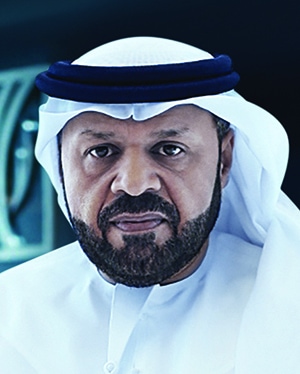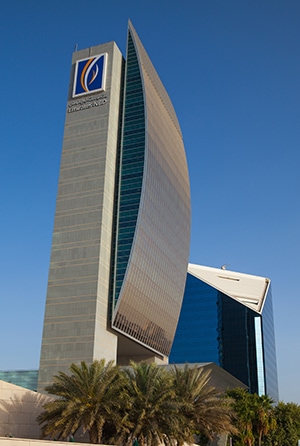Saod Obaidalla, executive vice president and head of Private Banking at Emirates NBD, speaks with Global Finance about the evolution of the regional economy and the bank’s plans to compete with global rivals.

Global Finance: Middle Eastern economies are strongly linked to oil prices, which have been volatile in recent years. How does that affect your private-banking business?
Saod Obaidalla: The oil price predominantly dictates the affected countries’ budget surpluses but does not significantly impact spending. The UAE is well-diversified, so real economic growth is largely unaffected. Our client base also has a very limited exposure to the oil and petrochemicals sector.
GF: What are the strengths and vulnerabilities of Emirates NBD in competition with the large global private banks that are active in your region?
Obaidalla: We have distinct advantages. We have closer and longer-standing relationships with our clients. Offering all the products and services of a universal bank is also important to them. We have a deeper understanding of regional capital markets, which means we are better able to structure bespoke lending solutions.
To provide more choice for customers, we have built private-banking offices with booking capabilities in London, Singapore, Saudi Arabia and most recently India. We are also working to develop our alternatives product offering. This has been limited so far, partially because demand from our clients has been limited.
Obaidalla: Shariah-compliant products such as mutual funds, structured products and certain cash-management solutions are part of our product suite. Experience has shown that the appetite for such compliant products is limited among our client base.GF: How important is shariah compliance to your private-banking clientele?
GF: What are the effects of generational shift among your regional clientele? How does your bank reach out to millennials?
Obaidalla: First of all, transfer to the next generation often comes with a fragmentation of wealth among multiple heirs. The second generation also wants stronger involvement in investment decisions. It looks for “investing with a purpose,” as opposed to mere wealth preservation and growth. And younger clients bring more-sophisticated product requirements, which our specialists look to fullfill.

GF: On what sources of growth are you focusing in private banking?
Obaidalla: We are growing in all our core market segments: GCC [Gulf Cooperation Council] nationals, Arab and European expatriates and people of the South Asian diaspora in our region. In addition, we are focusing on capturing wealth from regions with “logical ties” and significant trade flows with the GCC, such as East Africa and the wider MENA [Middle East and North Africa] region.
GF: Do rising political tensions in the Middle East affect your private-banking business?
Obaidalla: On the contrary, Dubai’s and the UAE’s reputation as a safe haven in the region is strengthening our ability to attract additional funds from clients seeking geographical diversification.
GF: How would you characterize the adoption of online/robo technology among Middle Eastern clients, compared with global peers?
Obaidalla: The landscape for automated investment platforms is still nascent in this region. However, leading regulators and financial free zones such as the Dubai International Financial Center and Abu Dhabi Global Market have launched fintech sandboxes to foster this. We expect rapid adoption of hybrid platforms that are automated but adviser led. We are implementing our own digitally enabled investment advisory.



